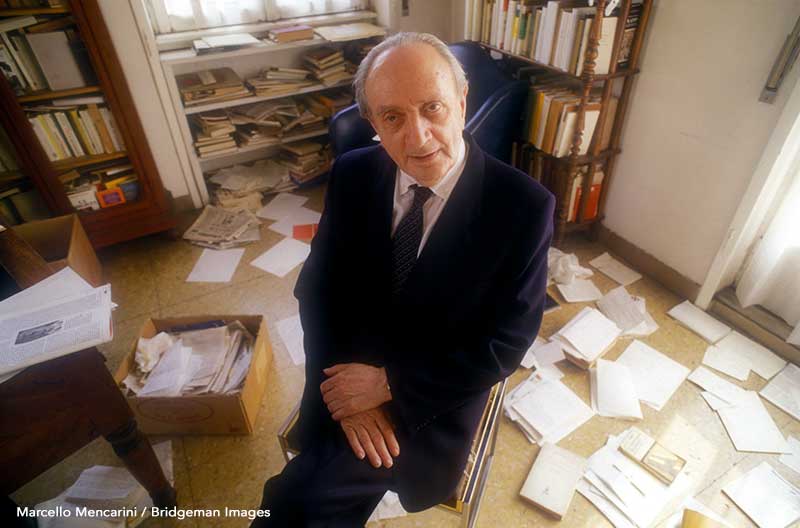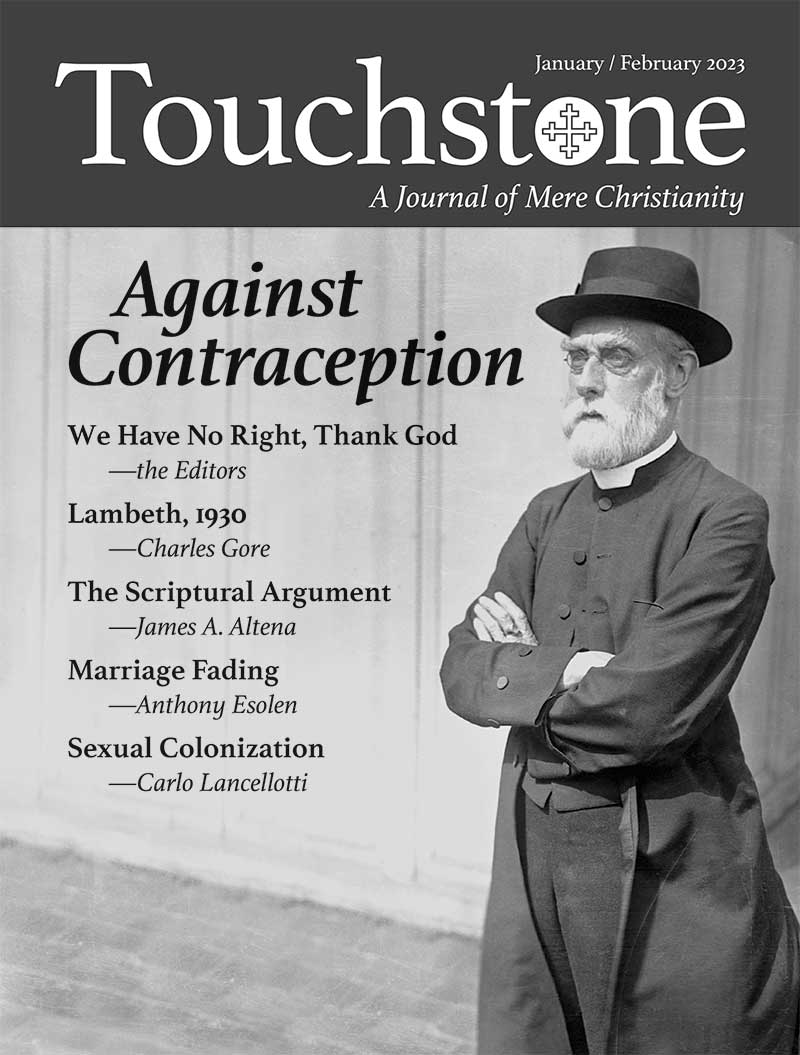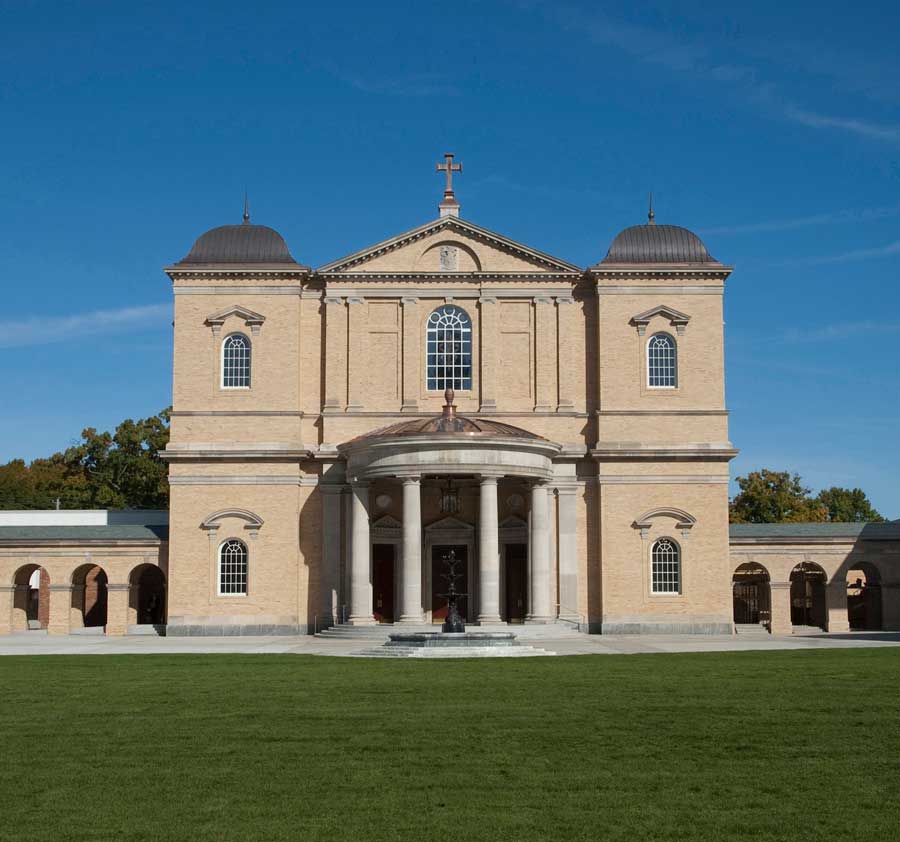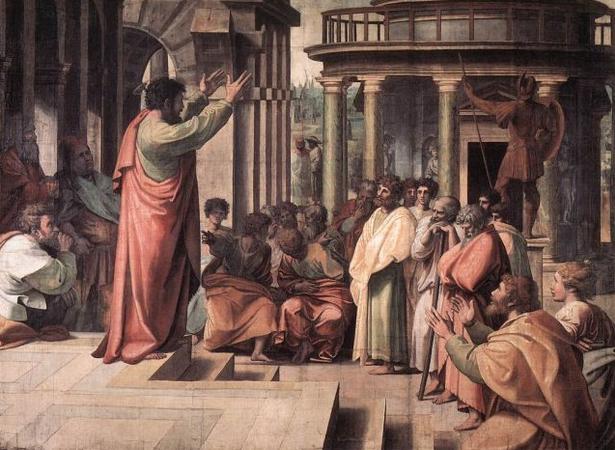Sexual Colonization
How the Sexual Revolution Dehumanizes Everything
One of the great cultural and social shifts of the second half of the twentieth century was the dramatic and profound transformation in sexual mores that quickly came to be known as the “sexual revolution.” At the time, sociologists tried to explain it as the result of various factors like the “Pill,” economic prosperity, the changed status of women, and so on. Many people, of course, discussed its moral significance, either as an explosion of libertinism that threatened the foundations of society (the “conservative” view) or as a liberation from the vestiges of “Victorian” morality (the “liberal” view). However, relatively few authors analyzed the sexual revolution from a philosophical angle, meaning neither sociologically nor ethically, but in terms of its metaphysical presuppositions and its place in the history of ideas.
A notable thinker who raised the question of the philosophical significance of the sexual revolution was Augusto Del Noce, a prominent Italian Catholic philosopher and political thinker who died in 1989. Del Noce became convinced that the sexual revolution could only be explained as the result of a deeper and broader culturalshift, namely, a radical transformation of our culture’s vision of what it means to be human, of our “philosophical anthropology.”
In fact, according to Del Noce, this shift should not even be described as a transformation of our view of human nature, because one of its constitutive elements is precisely the negation that there is a specifically human nature. This negation coincides with the negation of what the French cardinal and theologian Jean Daniélou called the “religious dimension,” meaning the fundamental human ability to ask religious questions, our innate aptitude for transcendence.
In this essay I would like to outline Del Noce’s analysis of the nexus between the suppression of the religious dimension (rather than of any particular religious tradition) and the triumph of the sexual revolution, including its aspect of producing (in the words of Pope Francis) a form of “ideological colonization.” Obviously, in an article I cannot do full justice to Del Noce’s thought, but I hope to give readers a taste of it. I will draw in particular from two collections of essays, titled The Crisis of Modernity and The Age of Secularization, which I edited and translated.
The Cultural Context of the Sexual Revolution
Del Noce’s analysis of the sexual revolution is inseparable from his diagnosis of the context in which the revolution started and progressed: Western culture at large in the two decades after World War II. Before the war, mainstream secular culture had largely failed to predict and prevent the rise of totalitarianism. After the war, it faced the double threat of Soviet communism and a rebirth of religion. It exorcised these dangers, broadly speaking, by rediscovering the ideas of the eighteenth-century Age of Enlightenment, and by repudiating the “Romantic reaction” that had prevailed in the nineteenth century and had still marked European culture in the first half of the twentieth.
By “Enlightenment” Del Noce means the rationalist emphasis on scientific and technical reason—the tool that enables humanity to leave behind the “dark ages” and enter “adulthood”—and also the rejection of religious and national traditions in favor of a secular and cosmopolitan culture. He describes the “confused but extremely widespread disposition” among scholars, journalists, and artists of the generation that came of age around 1945. Following the horrors of the war and the Holocaust, they rediscovered the Enlightenment as
a disposition to declare a break with traditional structures and criticize them inexorably from an ethical, political, and social standpoint. . . . This disposition is a mixture of a millennialist element—as if a great cosmic revolution had destroyed old Europe-turned-into-Babylon with its traditions and values—and an Enlightenment element pointing to the only philosophical road that can still be followed. . . . Therefore, emancipation from authority and traditions in the spirit of the Enlightenment had to take place according to the aspect of the Enlightenment that makes negation its dominant character.
This widespread anti-traditional sentiment among the intellectuals was reinforced by another rediscovery: that of Marxism, which also came back in vogue, especially in continental Europe, after World War II. According to Del Noce, “the rebirth of the mindset of the Enlightenment and the rediscovery of Marxism have met and compenetrated each other,” with the result that Marx was rediscovered in his scientistic and materialistic aspects, while his Romantic and revolutionary aspects were downplayed.
Del Noce points out that Marxist materialism in isolation (separated from belief in the revolution) leads to “total relativism,” because if all values are reflections of historical circumstances, they lack permanent validity. Then the study of human realities is entirely entrusted to social scientists, who are able to measure how different material factors shape the life of society.
Carlo Lancellotti is Professor of Mathematics at the College of Staten Island of CUNY and a faculty member in the Physics Program at the CUNY Graduate Center. He has translated three volumes of works by Augusto Del Noce, the late Italian philosopher and political thinker.
subscription options
Order
Print/Online Subscription

Get six issues (one year) of Touchstone PLUS full online access including pdf downloads for only $39.95. That's only $3.34 per month!
Order
Online Only
Subscription

Get a one-year full-access subscription to the Touchstone online archives for only $19.95. That's only $1.66 per month!
bulk subscriptions
Order Touchstone subscriptions in bulk and save $10 per sub! Each subscription includes 6 issues of Touchstone plus full online access to touchstonemag.com—including archives, videos, and pdf downloads of recent issues for only $29.95 each! Great for churches or study groups.
Transactions will be processed on a secure server.
more on biographical from the online archives
more from the online archives
calling all readers
Please Donate
"There are magazines worth reading but few worth saving . . . Touchstone is just such a magazine."
—Alice von Hildebrand
"Here we do not concede one square millimeter of territory to falsehood, folly, contemporary sentimentality, or fashion. We speak the truth, and let God be our judge. . . . Touchstone is the one committedly Christian conservative journal."
—Anthony Esolen, Touchstone senior editor











